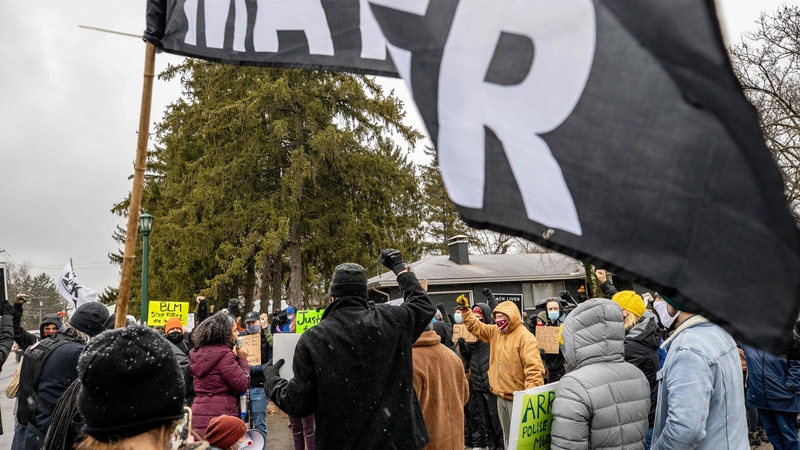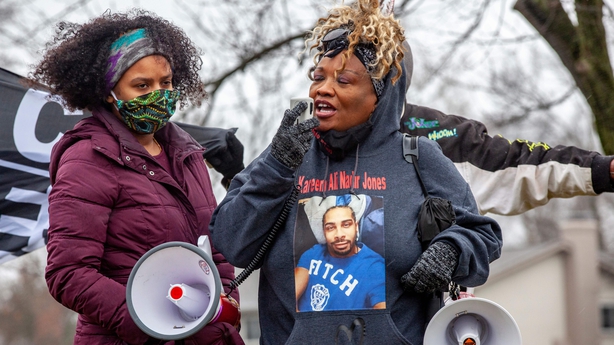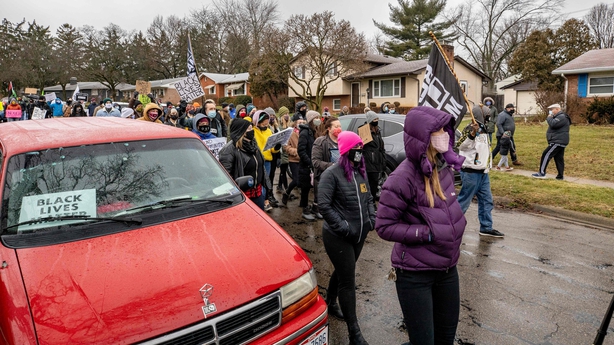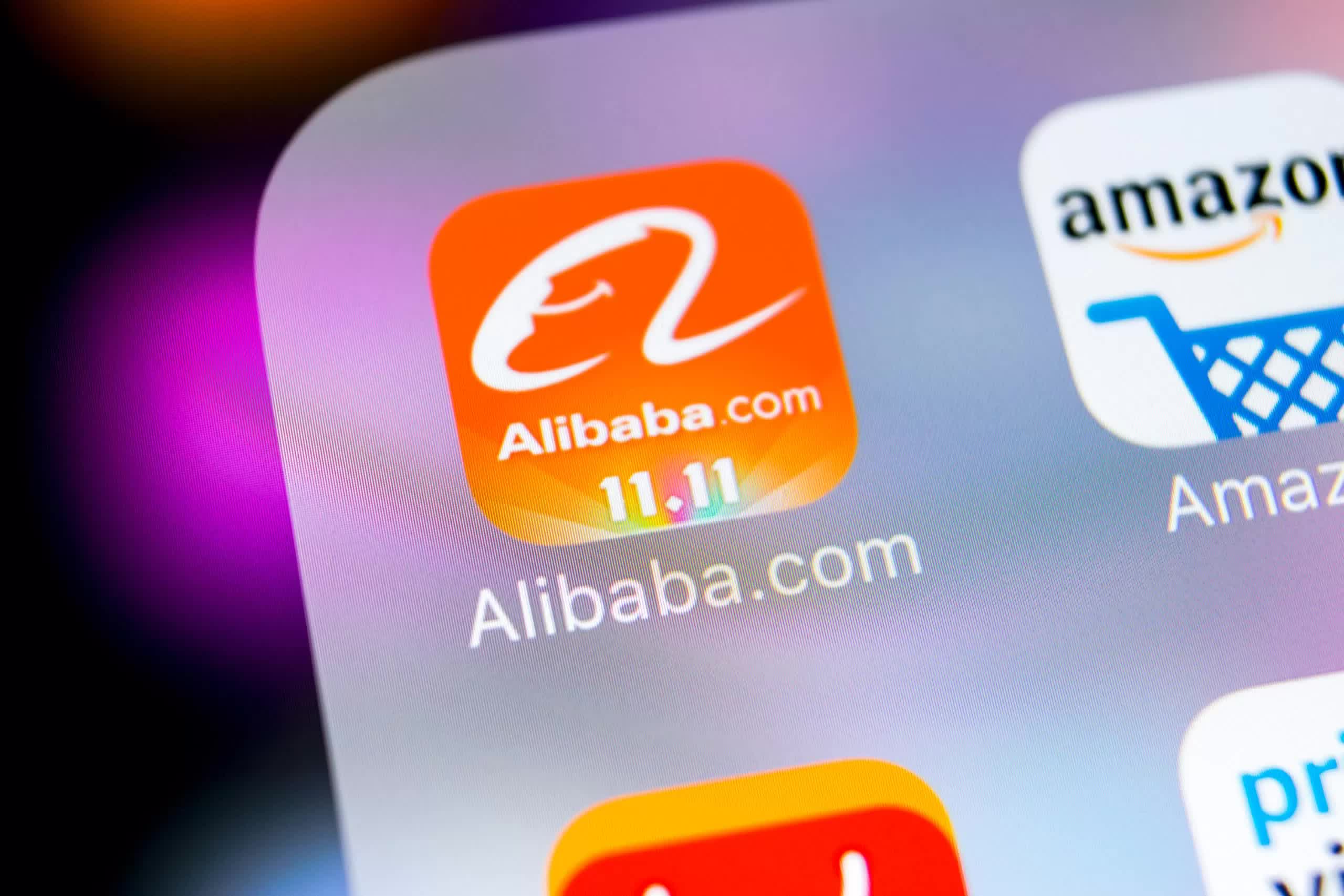Issued on: 07/12/2020

Text by:Jean-Luc MOUNIER
Outrage over high-profile cases of police brutality has revived talk of a culture of impunity in French law enforcement and heightened scrutiny of the country’s police watchdog, the IGPN, which critics say is hamstrung by a lack of independence.
In June of this year, at the height of protests against violence and racism in the police, France’s outgoing human rights ombudsman raised the alarm over a "crisis of public confidence in the security forces" in a wide-ranging report that made for grim reading.
In a parting shot after five years in the job, Jacques Toubon urged a reversal of what he described as a “warring mentality” that has driven a wedge between the police and the public. He denounced a culture of impunity in the force, lamenting the lack of accountability in French law enforcement.
Long-standing grievances over French policing returned to the fore in recent weeks following a string of high-profile incidents and a hugely controversial government proposal that critics say will make it more difficult to document cases of police abuse.
The incidents, which included the brutal clearing of a migrant camp in Paris and the beating of Black music producer Michel Zecler, have heightened scrutiny of the Inspection générale de la police nationale (IGPN), the police’s widely criticised internal disciplinary body.
Amid a fierce backlash that has seen tens of thousands rally in cities across the country calling for greater police accountability, government members – including the hardline interior minister, Gérald Darmanin – have been forced to concede shortcomings in the IGPN and examine ways to reform the police watchdog.
Accountable to the top cop
According to Mathieu Zagrodzki, a researcher at the University of Versailles Saint-Quentin, the IGPN’s problems stem largely from a concurrent deficit of independence and public trust.
“There’s widespread suspicion that the agency does not carry out its investigations as thoroughly and diligently as it should,” Zagrodzki explained in an interview with FRANCE 24.
“As a result, there’s a lack of public trust in the watchdog,” he added. “A lot of people don’t even bother complaining to the IGPN because they figure it is pointless.”
When it comes to cases of police brutality, the IGPN is routinely accused of downplaying the facts and siding with the police. Critics point to a flawed structure that inherently creates bias. The agency’s head is directly appointed by – and accountable to – the interior minister, who is frequently referred to as the “premier flic de France” (the top cop).
>> Racism, sex abuse and impunity: French police’s toxic legacy in the suburbs
It’s not just the leadership that is exposed to accusations of bias. The entire agency is largely composed of police officers. In 2019, they accounted for 72 percent of its 285 staff members.
“You essentially have police officers investigating other officers: That’s why people are suspicious of the IGPN, because they sense that abuses are settled in private,” Jean-Michel Schlosser, a sociologist at the University of Reims who formerly served in the police, told FRANCE 24.
Brigitte Jullien, the current head of the IGPN, has vehemently rejected criticism of her agency, describing it as an “insult to the ethics and professionalism” of her colleagues. In June, days after the release of Toubon’s report, she assured that the disciplinary body was “dreaded by all officers in France”.
“All professions, whether lawyers, doctors or journalists, have internal control mechanisms, and they never get criticised,” Jullien told French media, claiming that her agency is no less independent than others.
‘No power to punish’
Founded more than a century ago, the IGPN performs a number of duties with limited powers and resources. It inspects police services, evaluates practices and rules of engagement, and investigates complaints of abuse.
As Schlosser said, “it can make recommendations, but does not have the power to punish.”
IGPN investigations are either administrative or judicial. Administrative inquiries can be requested by the national police chief, the interior minister or the prefect (the local head of police). In judicial investigations, on the other hand, the agency can act on its own initiative or at the request of prosecutors and magistrates.
Ordinary citizens can also petition the disciplinary body via an online platform, though it is not obliged to act upon their complaints.
The trouble, said Schlosser, is that the IGPN’s powers are strictly curtailed during administrative inquiries.
“It can do little more than oblige officers to face questioning, which often results in a highly incomplete investigation,” the sociologist explains. “In contrast, judicial inquiries offer the IGPN much greater latitude. It can issue search warrants, for instance, and is only accountable to a magistrate.”
According to its latest annual report, the police inspectorate completed 1,322 judicial investigations in 2019. A further 238 administrative inquiries were carried out, leading to 276 “sanction proposals”. While the report does not specify how many of those “proposals” actually led to penalties, it notes that IGPN-recommended sanctions accounted for just 16 percent of all punishments meted out by the police.
A French exception
As critics are quick to point out, France’s police watchdog differs considerably from its counterparts elsewhere in Europe, both in its composition and its assignments.
Sebastien Roché, a political analyst and police expert, compared the French model with the practice in countries including the United Kingdom, Denmark, Finland and the Netherlands.
In those countries, Roché told French weekly Télérama, “[T]he first thing the authorities did was to appoint a magistrate – not a police officer – to head their police watchdogs.”
Schlosser noted that police watchdogs in such countries are headed by independent figures, who are often appointed by local legislatures. They operate as independent administrative authorities and are not answerable to the interior ministry.
“Furthermore, their investigators are not police officers, but most often legal experts and magistrates,” Schlosser added. “Police officers are present in a consultative capacity, based on their knowledge of their job.”
He pointed to the case of the Independent Office for Police Conduct (IOPC), in England and Wales, as emblematic of this culture of independence. The IOPC’s director is legally required to have never worked for the police. Its investigative units are mixed, including retired officers – who never make up more than a quarter of staff – and legal experts.
“The advantage with such a system is that you get a comprehensive understanding of situations,” said Zagrodzki. “On the one hand, there’s the police officer who knows the system and is familiar with procedural matters. And on the other, you get the perspective from the outside. That way, an action that may seem proportionate to officers can be flagged as socially unacceptable in a democracy.”
Greater autonomy ... within the interior ministry
In its most recent 12-month report, relating to 2018-19, the IOPC registered a total of 31,097 complaints from members of the public – more than three times the number recorded by France’s IGPN over the same period. It’s a significant discrepancy for countries with comparable population sizes, one that experts attribute to different cultures of interaction with the public.
“UK police officers are no more violent than their French counterparts,” Zagrodzki observes. “The difference is that there is far greater trust in the institution [in England and Wales], meaning people are more inclined to file complaints.”
He says appointing an independent head of the IGPN – an idea recently mooted by French Prime Minister Jean Castex – would mark a step in the right direction, though it would not be enough to change the culture of the French watchdog.
“Changing the leadership alone will not alter the structure of the agency, even though it could improve its image and encourage people to step forward with their complaints,” he explains.
For substantive change to take place, Zagrodzky added, the entire IGPN would need to become an independent body – a move the French government is unlikely to push for.
Challenged on the subject in an interview last week, President Emmanuel Macron advocated “greater transparency” in investigations and more scope for the IGPN to penalise malpractice.
However, he remained vague on the subject of the watchdog’s institutional independence, suggesting it should remain closely linked to police authorities and its tutelary minister, “top cop” Darmanin.
This article was adapted from the original in French.
Issued on: 30/11/2020 -

Text by: FRANCE 24
The French parliament has dropped a controversial bill that would have curbed the right to film police officers in action, the speaker of parliament and leader of President Emmanuel Macron's ruling party announced on Monday.
In an apparent effort to quell criticism, Christophe Castaner, head of Macron's LREM (La République en marche) party, said Monday that “there is a need to clarify the measure”.
"The bill will be completely rewritten and a new version will be submitted," he told a news conference.
Interior Minister Gérald Darmanin had refused to simply withdraw the controversial article, saying before a parliamentary commission on Monday that police “are not protected enough".
The draft bill had prompted protests across the country called by press freedom advocates and civil rights campaigners. Tens of thousands of people marched Saturday in Paris calling for the government to drop the measure, including families and friends of people killed by police.
Critics feared that the proposed law would have deprived journalists and others of a potent weapon against police misconduct – including videos of police actions – and threaten efforts to document cases of police brutality, particularly in immigrant neighbourhoods.
A provision in the draft law known as Article 24, which factored into Macron’s plans to court right-wing voters with a law-and-order message ahead of his 2022 re-election bid, had sparked outrage in the media and on the left flank of his own party.
Article 24 did not completely ban sharing images of the police, but made it a crime to share them with an “obvious intention to harm” – such as inciting violence against officers – punishable by a year in prison and a €45,000 ($54,000).
The bill aimed to prevent recognisable images of police officers from appearing on social media for fear they would face retribution for doing their jobs. The proposed "global security" law, as it was called, was partly a response to demands from police unions, who said it would provide greater protection for officers.
But the importance of documenting police activity was underscored again last week by the brutal beating of a Black man in Paris.
“I was lucky enough to have videos, which protected me,” said Michel Zecler, a Black music producer who was beaten by at least four police officers. Videos first published Thursday by French website Loopsider have been seen by more than 14 million viewers, resulting in widespread outrage.
Two officers remain in custody but two others have been released on bail as the investigation continues.
Controversial security bill: 'Macron and the French government blinked'

Hardening of police tactics in France
Abdoulaye Kanté, a Black police officer with 20 years of experience in Paris and its suburbs, is a supporter of the proposed law who also strongly condemns police brutality.
“What people don’t understand is that some individuals are using videos to put the faces of our colleagues on social media so that they are identified, so that they are threatened or to incite hatred,” he said.
“The law doesn’t ban journalists or citizens from filming police in action ... It bans these images from being used to do harm, physically or psychologically,” he argued, adding: “The lives of officers are important.”
A “tiny fraction of the population feeds rage and hatred” against police, said Jean-Michel Fauvergue, a former head of elite police forces and an LREM lawmaker who co-authored the bill, in comments at the National Assembly (lower house).
“We need to find a solution."
Critics noted a hardening of police tactics during protests or while arresting individuals. Hundreds of complaints have been filed against officers during the Yellow Vest movement for economic justice that erupted in 2018 and saw weekends of violent clashes.
Interior Minister Darmanin has countered that, out of 3 million police operations per year in France, some 9,500 end up on a government website that denounces abuses – a mere 0.3 percent.
"Protecting police and preserving freedom of the press are not in competition," he told deputies in his remarks to parliament on Monday.
(FRANCE 24 with AP and REUTERS)


















 The Weather Network
The Weather Network © JAXA JAXA
© JAXA JAXA
